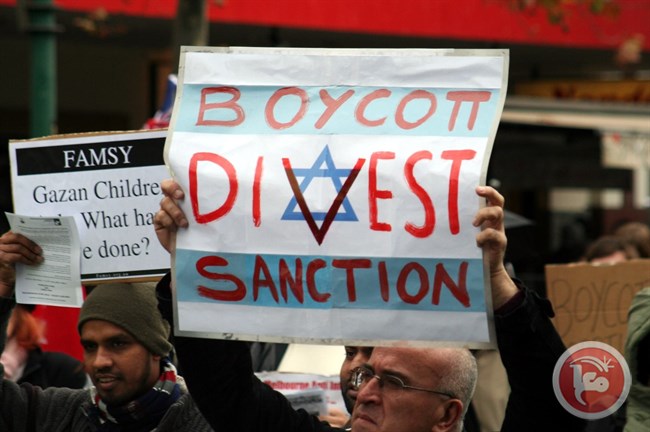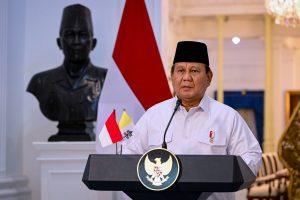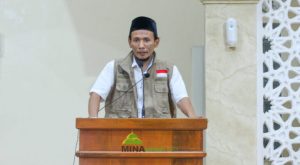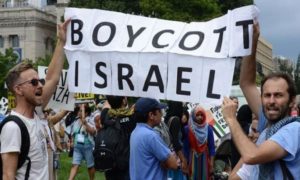Bethlehem, 19 Sya’ban 1437/27 May 2016 (MINA) – The Dutch government Thursday affirmed the right of individuals and groups to promote and engage with the Boycott, Divestments, and Sanctions movement (BDS), stating the movement falls under basic rights that are safeguarded by the Dutch constitution.
When asked about Israel’s ongoing threats to human rights advocates and the concerted attack on the BDS movement, Dutch Foreign Affairs Minister Bert Koenders reportedly stated that “statements or meetings concerning BDS are protected by the freedom of expression and freedom of assembly, as enshrined in the Dutch Constitution and the European Convention on Human Rights,” Middle East Monitor reported
The foreign affairs minister added that the Dutch government commonly discusses the BDS movement with Israel, but has made clear that the Dutch government “opposes a boycott of Israel, but that endorsing BDS falls under freedom of expression.”
The Dutch government is the second European government to uphold the right of its citizens to participate and organize with the BDS movement, with Sweden announcing in March 2016 that governments should not be involved in controlling civil society movements.
Also Read: Paul Pogba and Hakim Ziyech Among Athletes Urging UEFA to Boycott Israel
The announcement was seen as a blow to Israeli efforts to criminalize the movement overseas, which has been gaining ground across Europe, the United States and Canada in recent years.
At the start of 2014, Dutch pension fund PGGM withdrew investments worth tens of millions of Euros from five Israeli banks, citing the banks’ unethical and illegal activities in the occupied West Bank as reasons for the divestment.
According to the pension fund, the decision to withdraw the investments came after a long process of attempting to convince the Israeli banks to cease their financial support of Israel’s illegal settlements in the West Bank.
At the start of May, two Dutch political parties officially called for sanctions on Israel and a suspension of the EU-Israel Association Agreement if Israel continued its refusal to halt illegal settlement construction in the occupied Palestinian territory.
Victory of BDS supporters
Also Read: Auckland Protesters Rally for Palestine, Urge Nationwide Boycott of Israeli Products
The announcement by the Dutch foreign affairs minister came on the heels of a statement made by some 300 academics on Tuesday, calling for the boycott and cancellation of the Fifth Global Conference on Genocide, which is set to take place at Hebrew Univerisity — an Israeli-owned university built on privately-held Palestinian land in occupied East Jerusalem.
The Academics for Palestine stated that the conference location demontrated that genocide scholars were “turning a blind eye to Israel’s illegal annexation of the city, condemned unanimously by the international community, and to the ongoing campaign of dispossession against indigenous Palestinians as Israel seeks to erase their historic and diverse presence in the city through plunder and expulsion.”
“Israel’s actions against the Palestinian people — from the Nakba to the ongoing displacement of Palestinians from their lands, and from repeated military offensives against Gaza to the ongoing blockade — are increasingly being viewed through lenses of ethnic cleansing and genocide linked to settler colonialism,” the group added.
The Dutch government’s affirmation of the right to endorse BDS activities also comes less than three weeks after the Israeli government refused to renew the travel documents of Omar Barghouti, a co-founder of the BDS movement, in a move activists claim amounts to an attack on the movement as a whole.
Also Read: Protesters in London Denounce Israeli Violations of Gaza Ceasefire
The BDS movement has experienced an escalated crackdown amid an increase of activity and popular support for the movement in countries around the world
The French government rendered the movement illegal after extending an “anti-hate speech” law to include members of national groups, and upheld the conviction of dozens of BDS proponents for their participation in the movement.
In February, the Canadian parliament passed a motion overwhelmingly condemning the BDS movement, advising the government to “condemn any and all attempts by Canadian organizations, groups, or individuals to promote the BDS movement, both here at home and abroad” — the same day that students at McGill university in Montreal successfully passed a motion to officially support the movement.
A few days later, US President Obama signed into law a sweeping trade agreement that protects Israel from the BDS movement, opposing “politically motivated actions that penalize or otherwise limit commercial relations specifically with Israel,” referring to BDS activities.
Also Read: Russia Defends Indonesia, Calls IOC “Hypocritical” Over Israel Visa Dispute
In January, the Israeli Knesset held a conference to discuss ways to combat the BDS movement, which they claimed was a coordinated effort to delegitimize the state of Israel, and dedicated 100 million shekels (approximately $26 million) of the government’s 2016 budget to the issue.
Israeli government concerns over the BDS movement were amplified following the European Union’s decision in November to label products originating from Israeli settlements, which are considered illegal under international law. However, the EU made clear that the new regulations were not aimed at a boycott of Israeli export.
The BDS movement was announced in July 2005 by the vast majority of Palestinian civil society as a movement to restore Palestinian rights in accordance with international law through strategies of boycotting Israeli products and cultural institutions, divesting from companies complicit in violations against Palestinians, and implementing state sanctions against the Israeli government. T/R07/R01)
Mi’raj Islamic News Agency (MINA)
Also Read: IOC Suspends Indonesia’s Bid to Host Olympic Events After Visa Refusal for Israeli Athletes


































 Mina Indonesia
Mina Indonesia Mina Arabic
Mina Arabic